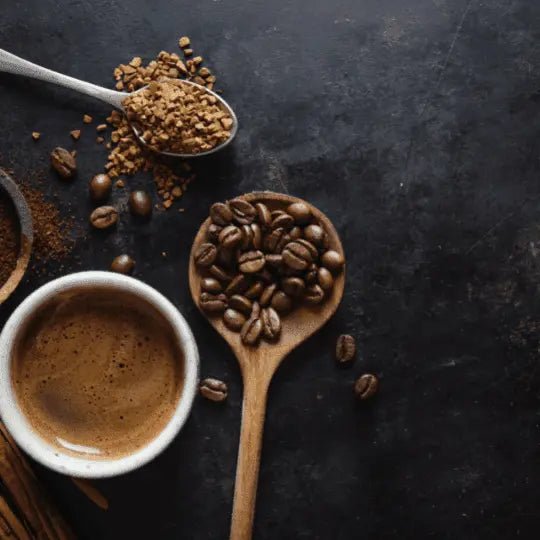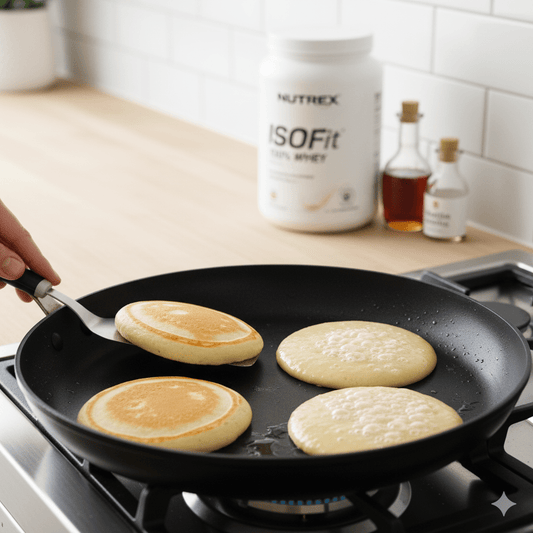The Best Time To Have Caffeine

The Best Time To Have Caffeine
Caffeine is a beautiful thing. It is scientifically proven to make you train harder and keeps you sharp between the ears. Unfortunately you can’t be slamming it back every hour of the day. Doing so will impair your sleep and quality of life. In order to get the most benefit from caffeine, you need to time it right. If you’re keen to perform at your best and avoid negative side effects then read below. You’ll learn all about caffeine and the best time to take it for optimum performance.
What Is Caffeine?
Caffeine is a stimulant naturally found in plants like coffee and guarana. Consumption of this wondrous substance improves your energy levels, reaction time and even decreases your perception of pain. Technological advances have given humans the ability to extract caffeine and use it in delicious tasting beverages like pre-workout. Nowadays there are so many caffeinated products available, it’s hard to limit our intake to a healthy level. Unfortunately if we have too much, there will be negative side effects. Caffeine works by blocking our adenosine receptors. This means it tricks our brain into thinking we are wide awake. If we have too much of it we will be anxious, jittery and unable to sleep. Having coffee too late in the day can also throw off our circadian rhythm and wreak havoc on our health. In order to reap all the benefits from caffeine, you mustn’t take it too early or too late. Timing your intake correctly will ensure your internal clock keeps ticking as it should.

Not Too Early
Although it is tempting to switch on the Nespresso machine as soon as you wake up, you’d be better off waiting an hour or so. Caffeine gives us energy by raising our levels of a hormone called cortisol. But because our cortisol is already naturally high in the morning, having coffee at this time is essentially redundant. Delaying your caffeine hit until at least 90 minutes after waking will have a far more noticeable effect on energy levels. There is no point spiking cortisol when it’s already high. Wait for it to dip before you drink that coffee and you’ll really notice a difference in alertness. Getting into the habit of delaying your morning coffee also means you are less likely to experience an afternoon crash. Sceptical? Give it a try for yourself and see if you notice a difference.
Before Your Workout
If you are consuming caffeine for its ergogenic (workout enhancing) properties then it is best to have it 30-60 minutes prior to your session. For those who train early, this will make following the rule mentioned above quite difficult. Caffeine before a workout is definitely not essential. You can have an amazing workout without any stimulants. However if you train during the day and want something extra to fire you up, pre-workout or coffee can make a measurable difference to your session. Studies show that caffeine increases an athlete’s speed, power and endurance. The perfect amount to have depends on your body weight, tolerance and genetics. Around 200mg-400mg is the standard recommendation but it’s always better to take the minimum effective dose. If you can feel an effect with a small amount of caffeine then there is no point going overboard. You definitely don’t want to form a dependence on stimulants. However it is a proven fact that a little hit of caffeine before a session can improve your performance.
Not Too Late
Feeling energised is fun unless you’re about to hit the sack. No one likes lying in bed, staring at the ceiling, worrying about how tired you are going to feel the next day. Drinking caffeine too late can seriously impair sleep and throw your circadian rhythm out of whack. Studies show that caffeine has a half life of around five hours. This means five hours after you have a coffee, half of the caffeine will still be in your system. Limiting your consumption to earlier in the day will make it much easier for you to doze off at night. We all know this but sometimes it’s hard to resist a late arvo cuppa. If insomnia is starting to interfere with your quality of life then it might be time to rethink your caffeine consumption. Most experts recommend cutting off your intake at 2pm or around six hours before going to bed. This will allow your body enough time to metabolise the caffeine and you should be able to sleep without any disruptions.
Conclusion
As they say, “timing is everything.” Caffeine can be a great thing when used correctly. A 6pm frappuccino might be tasty but it’s not worth sacrificing sleep for. Don’t complain about insomnia if you’re double scooping pre-workout before an evening gym session. This might make you feel great during the workout but your underslept body will suffer the next day. The research tells us that caffeine is best taken 90 mins after waking and no more than six hours before bed. Abide by these guidelines and your energy levels will be better for it.





